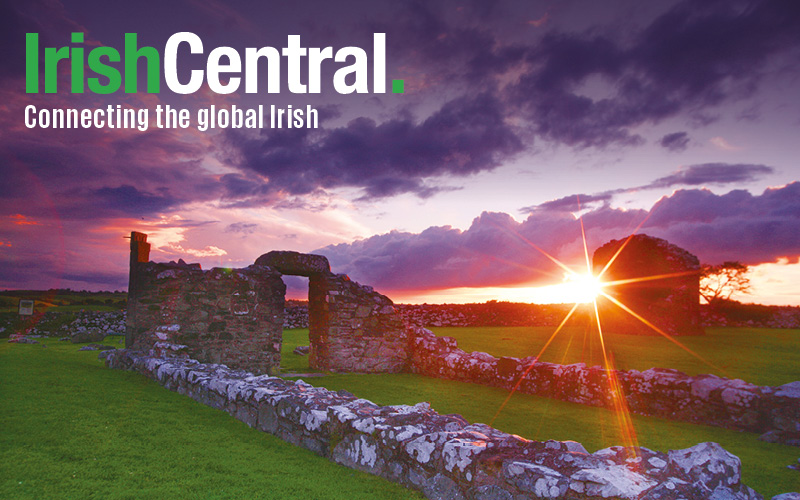Winning customers, not competitions
Below is a piece from one of our new contributing biz writers Russell Banks. It’s an honest appraisal of what happened to his award winning Irish startup, Conker.io. I’ve known Russell for a while now, he’s deeply embedded in the Irish startup ecosystem. He produces a monthly StartupDigest calender of all the startup happenings in the community in Dublin, Ireland. He also runs a quarterly startup event called Dublin Beta and is an all round good dude to know.
Having your startup fail hurts like hell. It’s one of the most stressful, self-doubt and guilt laden experiences you can imagine, and it really sucks. The disappointment in telling loved ones that all the missed personal events and time spent late in the office has amounted to nothing. The pain of letting down your team when you realize you will not be able to repay all their hard work and effort. The shame and guilt of having gotten investors to put their faith in you and here you are telling them that the journey is over. Since failing our first startup we’ve been on a new journey, but to tell you where we are now we need to retrace our steps.
Our previous startup, Conker.io, provided predictive behavioural analytics for free-to-play games developers. We gained entry into the NDRC Launchpad programme in September ‘12, allowing the founders to work on it full time. We won the final demo day event “Lift-Off” which, other than being personally rewarding, secured the financial future of the company for a few months. The feedback was excellent; the only reservations came from the few who asked “can you deliver?”.
Shortly after winning Lift-off we got accepted into Wayra Ireland and began scaling up our team as we received another injection of funds. By April ‘13 there were 6 of us working from Wayra’s offices on Sir John Rogerson’s Quay in the heart of the booming Irish tech scene.
Looking in from the outside we had it all—winning awards, securing funding, and scaling the team—but our inner workings weren’t all that transparent, even to ourselves. There was an issue at our core which just kept niggling away at us. It crept up on us. We could see it and feel it but we were so close that we seemed unable (or more accurately unwilling) to face up to the reality.
Yes we were working hard, but we weren’t working on the right things!
We made crucial mis-steps on product, sales and fundraising. We were winning competitions but not capitalizing on them, writing great code but our customers weren’t getting to use a product. These factors made fundraising more difficult particularly with the passage of time. We collectively didn’t have the correct focus: our customers. We ended up behaving like a software company of old, inwardly focused and developing a software product we thought our customers would want. We talked about lean principles but in actuality quickly slipped into software product development habits of times gone by. The longer we put off honest self examination the more afraid we were to go out and ask customers to find out if we were wrong or not.
In a way, winning Launchpad and getting into Wayra became stays of execution.Their investments gave us the financial runway to keep going, convincing ourselves that things would just change, but had we been honest with ourselves we could have used this time to address our issues. On reflection I sometimes wonder would we have been better off not winning Launchpad, or not getting into Wayra? All of the success we did have can be traced directly back to the teams in Launchpad and Wayra but without their financial support we would have been forced to face up to reality faster. They all invested a combination of time, mentoring and trust in us, not to mention cash and we were unable to convert that into an outcome for them. We hadn’t been honest with ourselves about how we were doing, and by extension we weren’t as transparent with our investors as we should have been. We ended up feeling that we had let all our investors and advisors down.
Conker.io came to an end in late July (the week of my wedding) and that was really hard for all of us. For me, personally, it felt like what I had been working towards for all of my adult life was crumbling away. We tried to see if we could keep Conker.io going in some form but after a few weeks we had to face reality and shutter the doors. It drained everything out of me and everyone involved.
What happened next, though, really touched me personally. In the immediate aftermath of Conker.io’s demise the team decided that they wanted to stay together, this was an amazing reflection on the camaraderie we had built up. This was echoed in a rallying cry from one of our advisors who thereafter became the first investor in our new company. We had members of the wider Dublin startup community reaching out to us to offer support and sharing their stories of failure and encouraging us to rise again. When we went out to tell investors like the seed funds and Enterprise Ireland what had happened they were shocked but one thing became clear: we weren’t the first, and they’ve seen worse. When you are in the middle of it you think what a fool you are, that you must be the only one, but in talking to investors you realise that this happens regularly. As startups we just don’t see it—or choose not to.
So what next? Well with the lessons from Conker.io in our minds, support from our families, advisors, investor and the community, we decided that we’d give it another go. We have experienced first hand how badly things can go and have no desire to make the same mistakes again. Before we worked solely on belief, but now honesty and transparency are at the core of everything we do. While not perfect, we are committed to doing things the right way. This means listening to customers, allowing our own beliefs to be challenged, focusing on incremental execution and holding each other to account.
Whereas previously we were busy winning competitions, we are now focused on winning customers, who have been our focus for the past few months at Pirate Dashboard. We have had over 200 meetings since September, from customer development, to UX meetings and we have 23 pre-paid beta customers, whose input is worked directly into our product on a daily basis.
This is just the beginning of a new honest and transparent journey for us and we invite you to share it with us.
Having your startup fail hurts like hell. It’s one of the most stressful, self-doubt and guilt laden experiences you can imagine, and it really sucks. The disappointment in telling loved ones that all the missed personal events and time spent late in the office has amounted to nothing. The pain of letting down your team when you realize you will not be able to repay all their hard work and effort. The shame and guilt of telling investors who put their faith in you that the journey is over.
I know because I’ve been there. Since failing our first startup we’ve been on a new journey, but to tell you how we got here, let’s retrace our steps.
Our previous startup, Conker.io, provided predictive behavioral analytics for free-to-play games developers. We gained entry into the NDRC Launchpad program, an Irish tech accelerator that gives promising emerging start-up teams the chance to develop their ideas, in September 2012, which allowed the founders to work on it full time. We won the final demo day event, “Lift-Off,” which, in addition to being personally rewarding, secured the financial future of the company for a few months. The feedback was excellent. The only reservations came from the few who asked “Can you deliver?”
Shortly after winning Lift-Off, we got accepted into Wayra Ireland and began scaling up our team as we received another injection of funds. By April 2013 there were six of us working from Wayra’s offices on Sir John Rogerson’s Quay in the heart of the booming Irish tech scene.
Looking in from the outside we had it all: we were winning awards, securing funding, and scaling the team. But our inner workings weren’t all that transparent, even to ourselves. There was an issue at our core. It crept up on us. We could see it and feel it, but we were so close that we seemed unable (or, more accurately, unwilling) to face up to the reality.
Yes we were working hard, but we weren’t working on the right things.
We were winning competitions, but not capitalizing on them. We were writing great code, but our customers weren’t getting to use an actual product. We made crucial mis-steps on product, sales and fundraising. We talked about lean principles, but in actuality quickly slipped into software product development habits of times gone by. The longer we put off honest self-examination, the more afraid we were to go out and ask customers to find out if we were wrong or not.
I sometimes wonder, would we have been better off not winning Launchpad, or not getting into Wayra? All of the success we did have can be traced directly back to the teams in Launchpad and Wayra, but without their support we would have been forced to face up to our own failings faster. They invested a combination of time, mentoring and trust in us, not to mention cash, and we were unable to convert that into an outcome for them. We hadn’t been honest with ourselves about how we were doing, and by extension we weren’t as transparent with our investors as we should have been. We ended up feeling that we had let all of our investors and advisors down.
Conker.io came to an end in late July (the week of my wedding), and that was really hard for all of us. For me, personally, it felt like what I had been working towards for all of my adult life was crumbling away. We tried to see if we could keep Conker.io going in some form, but after a few weeks we had to face reality and shutter the doors. It drained everything out of me and everyone involved.
What happened next, though, really touched me personally. In the immediate aftermath of Conker.io’s demise, the team decided that we wanted to stay together. This was an amazing reflection on the camaraderie we had built up. This was echoed in a rallying cry from one of our advisors, who thereafter became the first investor in our new company. We had members of the wider Dublin startup community reaching out to us to offer support - sharing their stories of failure and encouraging us to rise again. When we went out to tell investors, like the seed funds and Enterprise Ireland, what had happened they were shocked, but one thing became clear: we weren’t the first, and they’d seen worse. When you’re in the middle of it you think what a fool you are, that you must be the only one. But in talking to investors you realize that this happens regularly. As startups we just don’t see it, or choose not to.
So, what next? Well, with the lessons from Conker.io in our minds, and with support from our families, advisors, investor and the community, we decided that we’d give it another go. We had experienced firsthand how badly things can go when you let them, and had no desire to make the same mistakes again. Before, we worked solely on belief. But now, honesty and transparency are at the core of everything we do. While not perfect, we are committed to doing things the right way. This means listening to customers, allowing our own beliefs to be challenged, focusing on incremental execution, and holding each other to account.
Whereas previously we were busy winning competitions, we are now focused on winning customers, who have been our focus for the past few months at Pirate Dashboard.We have had over 200 meetings since September, from customer development to UX meetings, and we have 23 pre-paid beta customers whose input is worked directly into our product on a daily basis.
This is just the beginning of a new honest and transparent journey for us and we invite you to share it with us.
Pirate Dashboard solves the problem that startups have of getting a 360 view of their business. Startups are loud crazy places and it can become very difficult to know what you should be focusing on. Pirate Dashboard makes a startups life easier. They sync the data from the business tools already in use, collate and give them a 360 degree view of their business. 'Not just that we analyse it for them and identify areas that may require attention depending on where they are in terms of their own lifecycle. We provide clear actionable insights and just walls of graphs and numbers.' Finally startups can share their Pirate Dashboard with investors to enable better communication with stakeholders. Pirate Dashboard is currently in closed beta but will be accepting more entrants in the coming weeks.




Comments